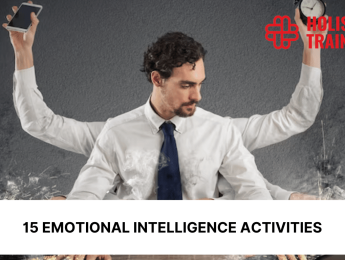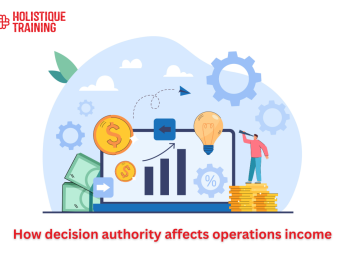- Table of Contents
- What Is the Concept of Choosing a Project?
- 5 Most Important Factors for Project Success
- a) Alignment with Organisational Goals
- b) Feasibility and Resources
- c) Stakeholder Buy-in and Support
- d) Risk Assessment and Mitigation
- e) Return on Investment (ROI) and Impact
- Critical Factors Affecting Choosing a Project
- 1- Market Analysis and Customer Demand
- 2- Resource Constraints and Availability
- 3- Organisational Culture and Capability
- 4- Technological Advancements and Trends
- 5- Project Complexity and Interdependencies
- 6- Regulatory Compliance
- 7- Scalability and Growth Potential
- 8- Customer and User Feedback
- Strategies for Becoming Better at Choosing the Best Projects as a Project Manager
- a) Establish Clear Project Criteria
- b) Collaborate with Stakeholders
- c) Regularly Reevaluate Projects
- d) Leverage Data and Analytics
- e) Learn from Past Projects
- The Role of Artificial Intelligence in Project Selection
- Data-driven Decision Making
- Risk Assessment and Mitigation
- Predictive Analytics
- Resource Optimisation
- Continuous Monitoring and Adaptation
- Personalised Project Recommendations
- Improved Project Portfolio Management
- Enhanced Collaboration
- Ethical Considerations
- Adoption Challenges
- The Ethical Dimensions of Project Selection
- Environmental Impact
- Social Responsibility
- Long-term Sustainability
- Transparency and Accountability
- Compliance with Regulations
- Ethical Supply Chain
- Ethical Diligence
- Impact on Vulnerable Groups
- Stakeholder Engagement
- Continuous Evaluation
- Conclusion
Introduction
The process of choosing a project is a pivotal moment for any organisation or project manager. The right project can lead to unparalleled success, growth, and positive impact, while the wrong one can result in wasted resources, time, and energy. In this comprehensive blog post, we will explore the concept of choosing a project, delve into the five most important factors that contribute to project success, identify critical factors affecting project selection, and provide valuable insights for project managers to become better at selecting the best projects.
What Is the Concept of Choosing a Project?
Choosing a project involves a thorough evaluation and selection process to determine which initiatives align best with an organisation's goals, objectives, and capabilities. A well-chosen project has the potential to create value, drive innovation, and generate long-term benefits. On the other hand, selecting the wrong project can lead to costly consequences, such as missed opportunities, budget overruns, and decreased morale.
When it comes to choosing a project, project managers need to strike a balance between ambition and realism. It's essential to avoid falling into the trap of taking on too many projects simultaneously or chasing after unrealistic goals. Instead, focusing on a few strategically chosen projects can yield more significant results.
5 Most Important Factors for Project Success
Before we delve into the critical factors affecting project selection, it is essential to establish a strong foundation by understanding the five most important factors that contribute to project success. These key elements serve as guiding principles for project managers seeking to make informed and strategic decisions in their project selection process. Let's examine these crucial factors that lay the groundwork for successful project implementation and delivery.
a) Alignment with Organisational Goals
One of the most crucial factors in selecting a project is ensuring that it aligns seamlessly with the organisation's overall strategic objectives. Projects that contribute to the core mission and vision of the company are more likely to receive the necessary resources, support, and commitment from stakeholders. It's vital to prioritise projects that have a direct impact on the company's growth, profitability, and long-term sustainability.
b) Feasibility and Resources
The feasibility of a project plays a pivotal role in determining its success. Assessing the availability of resources, including budget, skilled personnel, technology, and time, is essential. Projects that have a clear roadmap, a well-defined scope, and adequate resources are more likely to be completed on time and within the allocated budget. Unrealistic project expectations and insufficient resources are common reasons for project failure.
c) Stakeholder Buy-in and Support
Projects do not exist in isolation; they have implications across the organisation and beyond. Securing buy-in and support from key stakeholders, including executives, team members, customers, and vendors, is vital for project success. Engaging stakeholders early in the project selection process fosters a sense of ownership and ensures that their expectations and concerns are addressed, leading to smoother project execution.
d) Risk Assessment and Mitigation
Every project carries inherent risks and uncertainties. As a project manager, conducting a comprehensive risk assessment is imperative to identify potential roadblocks and create effective mitigation strategies. Projects with well-defined risk management plans have a higher chance of navigating challenges successfully. Being proactive in managing risks reduces the likelihood of unforeseen obstacles derailing the project's progress.
Table 1: Key factors for successful project selection
Factors | Importance | Description |
Alignment with Organisational Goals | High | Ensuring the project aligns with the organisation's strategic objectives is crucial for securing resources and support. |
Feasibility and Resources | High | Assessing the availability of resources, including budget, skilled personnel, and technology, is essential. |
Stakeholder Buy-in and Support | High | Engaging stakeholders early fosters ownership and ensures expectations are addressed, leading to smoother execution. |
Risk Assessment and Mitigation | High | Identifying potential roadblocks and creating mitigation strategies is crucial for navigating challenges effectively. |
Return on Investment (ROI) and Impact | High | Measuring the project's impact on the organisation's bottom line and strategic aspects helps prioritise projects. |
e) Return on Investment (ROI) and Impact
A successful project not only delivers the desired outcome but also generates a positive return on investment. Evaluating the potential impact of a project on the organisation's bottom line and other strategic aspects is essential. Measuring the ROI, both in financial and non-financial terms, helps prioritise projects with the highest potential for long-term success.
Critical Factors Affecting Choosing a Project
When selecting a project, project managers and organisations must navigate a complex landscape of factors that significantly influence the likelihood of success. Beyond the foundational factors discussed earlier, there are additional critical considerations to bear in mind. Here, we delve deeper into these factors, shedding light on their importance in project selection:
1- Market Analysis and Customer Demand
Understanding the market landscape and customer demand is pivotal when selecting a project. Organisations must conduct comprehensive market research to identify market needs, trends, and potential opportunities. Projects that align with existing market demands or provide innovative solutions to emerging challenges are more likely to succeed. Engaging with potential customers for feedback and validation is also essential, ensuring that the project meets real-world needs and preferences.
2- Resource Constraints and Availability
Resource constraints, such as budget limitations, skilled workforce shortages, and time constraints, can significantly impact project selection. It's not enough to consider whether resources are available; project managers must also evaluate the organisation's capacity to allocate these resources effectively. Striking a balance between project ambition and resource limitations is crucial to avoid overstretching resources and prevent project failure due to insufficient support.
3- Organisational Culture and Capability
The alignment of a project with an organisation's culture and core competencies is paramount for success. A project that resonates with the company's values, work culture, and expertise is more likely to thrive. Project managers should carefully assess the organisation's strengths and weaknesses to tailor their project choices to leverage existing capabilities effectively. This alignment fosters enthusiasm among team members and enhances the organisation's ability to deliver on the project's objectives.
4- Technological Advancements and Trends
In today's fast-paced business environment, staying attuned to technological advancements and industry trends is essential for project selection. Projects that leverage the latest technology and align with industry developments are better positioned to remain competitive and deliver impactful results. Project managers must actively monitor emerging technologies to identify opportunities for innovation and continuous improvement.
Statistics
In a recent Harvard Business Review article, it was revealed that a mere 35% of contemporary projects achieve successful completion, partly attributed to the limited maturity of available project management technologies. The future looks promising despite that. In fact, statistics show that a significant 82% of senior leaders anticipate that artificial intelligence (AI) will influence the execution of projects within their organisations to some extent over the next five years.
5- Project Complexity and Interdependencies
Assessing the complexity of a project and its interdependencies with other ongoing initiatives is critical during project selection. Overly complex projects may carry a higher risk of failure, requiring extensive resources and posing management challenges. Additionally, interconnected projects necessitate careful coordination to prevent conflicts and resource bottlenecks. Project managers must thoroughly evaluate these factors to make informed decisions and ensure seamless project execution.
6- Regulatory Compliance
Compliance with regulatory requirements is a crucial consideration, especially in industries subject to stringent regulations. Failing to adhere to legal and industry-specific standards can lead to costly setbacks and legal issues. Organisations must evaluate whether a proposed project complies with relevant regulations and allocate resources for necessary compliance measures.
7- Scalability and Growth Potential
A critical factor in project selection is assessing a project's scalability and growth potential. Organisations should evaluate whether a project can evolve and expand as business needs change. Projects that offer scalability can adapt to increasing demands, ensuring long-term viability. Consideration of growth potential aligns with the organisation's strategic goals for expansion and sustainability.
8- Customer and User Feedback
Customer and user feedback is a valuable source of insights for project selection. Organisations should actively solicit input from customers, end-users, and stakeholders to gauge their needs, preferences, and pain points. Feedback-driven project selection ensures that projects address real-world issues and are more likely to gain acceptance and adoption in the market.
Strategies for Becoming Better at Choosing the Best Projects as a Project Manager
As we have explored the critical factors that affect project selection, let's now shift our focus to essential strategies and practices that can empower project managers to become better at choosing the best projects for their organisations.
a) Establish Clear Project Criteria
Developing a well-defined set of criteria for project selection is essential. Criteria should align with the organisation's strategic objectives and should take into account factors such as ROI, alignment with organisational goals, resource requirements, and risk assessment. Having a clear set of guidelines helps in objectively evaluating potential projects.
b) Collaborate with Stakeholders
Involving key stakeholders throughout the project selection process promotes transparency and ownership. Engage stakeholders in discussions, gather their input, and address their concerns. Collaborative decision-making leads to better project alignment with the organisation's needs and enhances the chances of success.
c) Regularly Reevaluate Projects
Organisational priorities, market conditions, and resource availability may change over time. As a project manager, it is crucial to regularly reevaluate ongoing and proposed projects to ensure they remain relevant and feasible. Projects that no longer align with the organisation's goals or lack the necessary support should be reconsidered or discontinued.
d) Leverage Data and Analytics
Data-driven decision-making is a powerful tool in project selection. Utilise data and analytics to assess the potential impact, ROI, and risks associated with various projects. Embracing data-driven insights enables project managers to make well-informed choices and identify hidden opportunities.
e) Learn from Past Projects
Past project experiences offer valuable lessons for improving future project selections. Conduct post-project evaluations to identify strengths, weaknesses, and areas for improvement. Apply these insights to enhance project selection processes and increase the likelihood of success in future endeavours.
The Role of Artificial Intelligence in Project Selection
In the rapidly evolving landscape of project management, artificial intelligence (AI) has emerged as a transformative tool for enhancing project selection processes. AI leverages advanced algorithms and machine learning to analyse vast datasets, uncover patterns, and generate actionable insights. Here, we delve into the multifaceted role of AI in project selection, highlighting its key applications and benefits:
Data-driven Decision Making
AI empowers project managers with data-driven decision-making capabilities. It can sift through an extensive range of historical project data, including successes and failures, resource allocation, and project outcomes. By analysing this data, AI assists in identifying patterns and trends that can inform project selection. This approach reduces the reliance on intuition and gut feeling, increasing the likelihood of making informed choices.
Risk Assessment and Mitigation
AI excels in risk management by identifying potential project risks and proposing mitigation strategies. By evaluating historical project data and external factors, AI algorithms can predict risks that may not be immediately apparent to humans. This enables project managers to proactively address risks and uncertainties, enhancing project resilience and success.
Predictive Analytics
AI's predictive capabilities extend to forecasting project outcomes. By examining historical project performance and considering various project parameters, AI models can predict the potential success or failure of a proposed project. This predictive power allows organisations to allocate resources more efficiently, focusing on projects with a higher probability of success.
Resource Optimisation
AI assists in resource allocation by analysing resource availability, skills, and constraints. It can recommend optimal resource allocation strategies, ensuring that projects have the necessary personnel, equipment, and budgetary support. This prevents overallocation of resources to projects and minimises resource bottlenecks, ultimately leading to better project outcomes.
Continuous Monitoring and Adaptation
AI's real-time monitoring capabilities enhance project selection's dynamic nature. It continuously collects and analyses project data, offering early warnings for deviations from the planned course. Project managers can then adapt and make course corrections promptly, preventing project derailments.
Personalised Project Recommendations
AI can provide personalised project recommendations based on an organisation's unique context and goals. By considering the organisation's specific objectives, constraints, and historical data, AI can suggest projects that align most closely with the company's strategic direction. Such AI software includes Jira, Inflectra, ClickUp, etc.
Improved Project Portfolio Management
AI aids in optimising an organisation's project portfolio. It can assess the overall impact and risk of the entire project portfolio, helping decision-makers prioritise projects that collectively contribute to organisational success. This results in a well-balanced and high-performing portfolio.
Enhanced Collaboration
AI-driven collaboration tools facilitate communication and information sharing among project stakeholders. By automating routine communication tasks, AI frees project managers to focus on critical decision-making and problem-solving, ultimately improving project selection and execution.
Ethical Considerations
While AI offers significant advantages in project selection, it also raises ethical considerations. Organisations must ensure that AI algorithms are unbiased and do not perpetuate discrimination. Transparency and fairness in AI-driven decision-making are paramount to ethical project selection.
Adoption Challenges
Implementing AI in project selection may pose adoption challenges, including the need for specialised skills, data quality concerns, and resistance to technology-driven decision-making. Overcoming these challenges requires careful planning, training, and change management efforts.
In short, artificial intelligence is revolutionising project selection by providing project managers with data-driven insights, risk assessment, and predictive capabilities. Leveraging AI can result in more strategic, efficient, and successful project portfolios, ultimately driving organisational growth and innovation. However, it is crucial for organisations to consider ethical implications and address adoption challenges when integrating AI into their project management processes.
The Ethical Dimensions of Project Selection
Beyond the practical aspects of project selection, ethical considerations play a vital role in ensuring that organisations conduct their business in a responsible and sustainable manner. Examining the ethical dimensions of project selection involves assessing the impact of projects on various stakeholders, the environment, and society as a whole. Here, we elaborate on the ethical dimensions of project selection, emphasising their significance and providing guidance for ethical decision-making:
Environmental Impact
Ethical project selection necessitates a thorough assessment of a project's potential environmental impact. Projects that may harm ecosystems, deplete natural resources, or contribute to pollution should be scrutinised carefully. Ethical organisations prioritise projects that demonstrate environmental responsibility, consider sustainability, and align with green initiatives.
Social Responsibility
Project managers must consider the social implications of their projects. Ethical project selection involves evaluating how a project might affect communities, including issues related to displacement, labour conditions, and societal well-being. Organisations should prioritise projects that promote social responsibility, inclusivity, and positive social outcomes.
Long-term Sustainability
Ethical project selection requires a focus on long-term sustainability. This includes evaluating whether a project aligns with the organisation's commitment to long-lasting, positive impacts on society and the environment, rather than pursuing short-term gains that may compromise sustainability.
Transparency and Accountability
Ethical organisations embrace transparency and accountability in project selection. Decisions should be made transparently, with clear justifications and assessments of ethical considerations. Additionally, there should be mechanisms in place to hold decision-makers accountable for the ethical outcomes of selected projects.
Compliance with Regulations
Ethical project selection ensures compliance with local and international regulations and standards. Organisations should assess whether their projects adhere to laws related to environmental protection, labour practices, and ethical business conduct. Non-compliance may lead to legal and reputational risks.
Ethical Supply Chain
Organisations should consider the ethical dimensions of their supply chain when selecting projects. This involves evaluating suppliers and partners to ensure they share the same ethical values and adhere to responsible business practices.
Ethical Diligence
Ethical diligence involves conducting thorough assessments of potential projects to uncover any ethical concerns or conflicts of interest. This process helps organisations identify and address ethical challenges early in the project selection process.
Impact on Vulnerable Groups
Ethical project selection includes a consideration of the impact on vulnerable or marginalised groups. Project managers should assess whether a project might disproportionately affect these groups and take measures to mitigate harm or provide equitable benefits.
Stakeholder Engagement
Engaging with stakeholders, including affected communities, NGOs, and experts, is an essential part of ethical project selection. By soliciting input and addressing concerns, organisations can ensure that project decisions consider a wide range of perspectives.
Continuous Evaluation
Ethical project selection is an ongoing process. Organisations should continuously evaluate the ethical dimensions of their projects throughout their lifecycle, making adjustments and improvements as needed to uphold ethical standards.
Conclusion
Choosing the right projects is a critical aspect of a project manager's role. By carefully evaluating alignment with organisational goals, feasibility, stakeholder buy-in, risk management, and potential impact, project managers can increase the likelihood of success. Considering market dynamics, resource availability, organisational culture, technology trends, and project complexity further enhances the project selection process.
As the project management landscape evolves, continuously refining project selection processes and leveraging data-driven insights become increasingly essential. By adopting proactive and collaborative approaches to project selection, project managers can lead their organisations toward sustained success and impactful outcomes.
To enhance your project selection skills and gain valuable insights into project management, consider enrolling in our specialised course, ‘Project Management for Non-Managerial Positions.’ This course is designed to equip you with practical tools and strategies, empowering you to make effective project decisions and contribute significantly to your organisation's success. Don't miss this opportunity to take your project management skills to the next level!

























